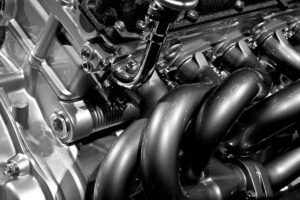Car wreckers specialise in recycling cars that are no longer roadworthy, using a rigorous process to make sure all usable parts can be salvaged while any unusable pieces are disposed of responsibly.
Their vehicles may come from auctions, private sellers, insurance companies or trade-ins; and may have been involved in accidents, mechanical problems or have simply reached their end-of-life stages.
Recycled Parts
Car wreckers Adelaide typically drain all fluids from scrap vehicles that come their way, such as engine coolant, oil or transmission fluid. In addition, they remove batteries which may still have enough charge left in them for reuse in other vehicles or can even be sold as resold items if there’s sufficient demand.
 Reusing wheels and tires from an old car can save the owner money; wreckers offer this service to help them save on replacement costs by selling these parts at reduced rates.
Reusing wheels and tires from an old car can save the owner money; wreckers offer this service to help them save on replacement costs by selling these parts at reduced rates.
Recycled metals can be transformed into many useful products, from cans and construction materials to new parts for cars. Recycling these resources reduces mining virgin metals which are limited resources; and can even be melted down and formed back into their original forms, saving energy while cutting carbon dioxide emissions by recycling alternators and starter motors from cars.
Salvaged Metal
Car wreckers take great care in disassembling scrap vehicles to identify functional parts that can then be sold off as replacements or repaired cars for customers who need them, reducing both environmental impacts as well as costs of purchasing new ones. This practice helps preserve our planet while saving on costs related to new vehicle purchases.
Metals such as batteries, radiators, exhaust systems and engine blocks typically hold high values that can easily be recycled into new products. Other metals like aluminum and steel tend to have lower values but still offer some reusability potential.
Fluids such as fuel, oil, air conditioning refrigerant and windscreen wiper fluid are easily recycled to protect the environment by reducing landfill volumes of hazardous substances. Car wreckers Adelaide offer additional recycling solutions by crushing vehicles into fist-sized chunks before sending them off for shredding by an automotive shredder or hammer mill.
Recycled Fluids
If you run a shop that works on cars or hydraulic machinery, chances are there’s a container on your property to hold used fluids. Instead of leaving this on for too long though, consider taking them to a recycling plant that processes and filters used oil in order to remove physical impurities and dirt, then reuses it either in engines, heating fuel for diesel and marine engines, or to lubricate systems. Be wary when storing motor oil alongside other car fluids such as brake or transmission fluid as this may prevent proper recycling from taking place.
Your local recycling provider likely can also handle other fluids, such as antifreeze and lubricant oils, for reuse in their facilities as heat. Many machine shops that recycle oil also utilise its refined waste oil for heat generation – providing a cost effective, eco-friendly option. Industrial lubricants frequently recycled include cutting lubes, way lubes and machining fluids.
Recycled Materials
Metal scraps, paper waste, various plastic bottles and wood waste can all be recycled – cutting down on energy consumption while decreasing new material needs and costs. Recycling reduces energy use significantly!
Car recycling companies rely on sophisticated machinery for precise dismantling, which ensures usable parts reach the market rapidly while the environment remains safe. Any hazardous chemicals are professionally extracted before entering the soil; any fluid contamination such as engine oil or coolant is cleaned before reaching ground water sources.
Manufacturers are turning increasingly towards recycled material when designing and producing new cars. Audi is producing seats from yarn created using 89% ground-up PET bottles; Ford uses Repreve (a hybrid fibre made of recycled post-consumer plastic and post-industrial waste), while Volvo incorporates material derived from reclaimed Mediterranean Sea plastic and agave plant bi-products into its Born electric hatchback’s seat fabric.
